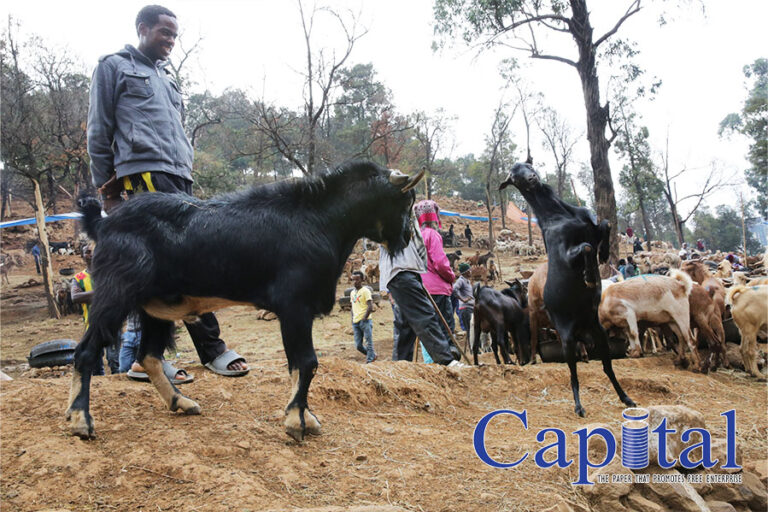New McKinsey research estimates that while cash is still king in Africa, the e-payments market is likely to grow by more than USD 40 billion in revenues from domestic payments alone between 2020 and 2025, with about 188 billion in transaction volumes.
The research was published in a new report, The future of payments in Africa, and unpacks how demand from consumers and businesses, innovations, entrepreneurs, regulators, and capital are reshaping Africa’s fast-growing electronic-payments landscape. It also highlights the challenges and possibilities for traditional and non-traditional players looking to find their niche in this rapidly evolving and increasingly competitive landscape.
In 2020, e-payments generated approximately USD 24 billion in revenues, of which about USD 15 billion was domestic electronic payments from 47 billion individual transactions totaling just over USD 800 billion of transaction values. However, on average, only 5 to 7 percent of all payment transactions in Africa were made via electronic or digital channels.
According to Edem Seshie, an Associate Partner in McKinsey’s Lagos office, e-payments constitute a significant growth opportunity on the continent, especially as the convenience and scalability of payment methods improve and support infrastructure develops.
“Enduring pain points coupled with shifts in consumer and business behavior, as well as supportive government and regulatory environments, are opening up unprecedented opportunities for the acceleration of e-payments in Africa. Local, global, traditional, and new players are all innovating to capture the USD 40 billion of revenue potentially at stake by 2025. This is an exciting, complex, and evolving market with tremendous growth prospects, and we can expect to continue seeing a new generation of winners emerge and scale,” says Seshie.
The key highlights include the compound annual growth rate (CAGR) of revenues for online payments will likely exceed 30 percent, possibly reaching about USD 13 billion in 2025, meaning revenues will more than quadruple between 2020 and 2025. Moreover, the cards and wallets could account for nearly 40 percent of revenues, respectively, with account-based payments accounting for less than 25 percent.
The research further reveals that around half of future electronic-payments revenue will likely come from Egypt, Ghana, Kenya, Nigeria, and South Africa, with the fastest growth in Nigeria, at 35 percent per year.Other countries that couldsee electronic-payments growth above 20 percent per year include Ghana, Ivory Coast, Kenya, Senegal, and Uganda. South Africa is likely to represent a smaller share overall while remaining the biggest e-payments market in Africa in 2025, with USD 5 billion in annual revenues.
McKinsey research shows that Africa’s electronic payments market could grow by 152 percent by 2025
CYCLING: The wheels of change
It is becoming a common occurrence to spot bike-riders cycle past on Sunday mornings across various streets in the capital, a scene that was once familiar with the athletics community.
With the number of riding enthusiasts growing by the weekend, Capital decided to reach out to the cyclist community with the perspective of understanding this enthusiastic sport in light of the much needed boost for non motorized transport in the country.
“On the weekends you would often find us peddling away along the streets with my friends,” Dawit Dagnew, founder of Addis Mountain Biking group narrates as he expresses how his current 77 member team has been expanding, more so after the pandemic.
“I started the group 5 years ago for the purpose of sport, with my friend. And now we have grown in number. The pandemic has also added to the number of cyclists in our group, since COVID-19 was a wake-up call for many to staying healthy and in maintaining a regular exercise routine,” Dawit elaborated.
Dawit and his group members go out riding every Sunday and often maintain contact through social media. “We usually prefer to cycle outside of the city, especially in places which we have neither seen, nor been to,” he said infusing cycling with the spirit of adventure.
In Ethiopia, cities and rural centers are characterized by widespread use of non-motorized modes. Walking is a dominant mode, particularly for low-income groups who travel mostly by foot. In spite of a dramatic increase in motorization in Addis Ababa, the largest share in the capital city among modes of transport still remains to be walking while private cars make up the smallest share.
Cycling has also brought together people from all walks of life leading to a community that has championed great causes as is the case for ‘Egre Menged’ co-founder Maren, a German cycling enthusiast who grew up in the cycling town of Münster, Germany together with Ephrem, her co-founder, who shares the same passion from his early years in Dire Dawa.
“As we enjoyed Sunday rides together, we came up with the idea of inviting more people for them to also enjoy the activity and healthy exercise,” recalls Maren as their community- based cycling group now seeks to promote sustainable/non-motorized mobility as well as develop a bicycle-friendly community and city.

“The longest tour we have ever taken is to Sebeta, south-west of Addis, which was 82 kilometers. But our intention is not to ride long, intense tours but rather doing 25-35km tours so that it is doable for the average cyclist and not only the experienced ones,” Maren said with reference to some of the longest intervals that her cycling group has taken thus far.
In most countries, Non-Motorised Transport (NMT) offers basic and affordable mobility, access to public transport, and health benefits. The situation in Ethiopia however is different in that it is difficult to afford a bicycle in addition to the cities and rural centers, neither being designed for walking nor cycling.
In spite of the widespread use of non-motorized modes, transport planning and the provision of infrastructure, Ethiopian cities have been largely car-centered, underestimating the importance of NMTs.
Moreover, traffic including careless motorized road users is among the challenges of riding bikes in Addis, and as Maren highlights, “Pedestrians and street vendors block the few cycle lanes. Furthermore, there are a small number of existing cycling lanes and the roads we have to use instead are often uneven and have dangerous holes.”
“Little street lighting and harassment especially to female riders are part of the hurdles we face as cyclists,” Maren explains.
In the late 90s, it was normal to see rental bicycles in villages across the country. The widespread availability of bicycles through small scale rental services found in cities across the country represented an opportunity to promote cycling and over the years it seemed to fade away as the price of bicycles in Ethiopia have continued to rise.
In spite of the widespread use of non-motorised modes, transport planning and the provision of infrastructure in Ethiopian cities have been largely car-centered with cyclists sharing travel lanes with motor vehicles; with traffic safety challenges being widespread. The lack of designated infrastructure for cycling has created significant safety issues and concerns on the part of users, which have contributed to experts suggesting for an improved transport system.
It is a widely agreed upon phenomenon that the convenience, comfort, and safety of walking and cycling reduces the demand for travel by personal motor vehicles, helping to alleviate the critical traffic challenges facing many cities. Greater emphasis on walking, cycling, and public transport in the planning, design, construction, and management of transport systems is needed to achieve a more equitable allocation of road space to which cities should provide safe, efficient, and accessible walking and cycling networks to improve mobility for all residents, whilst enhancing access to opportunities.
“Nowadays it’s difficult to ride bikes in the city, especially on main roads since people often have the notion that bikes cause traffic jams on roads,” Dawit says, adding, “even though there are bike lanes in different parts of the city, they are not fully functional.”
“Biking has helped us to explore more and so far we have done more than 300 trips. For us the longest trip has been from Addis Ababa to Weliso, which is a 130 km bike ride,” said Dawit, adding, “besides the distance trips, cycling helps us to promote a healthier lifestyle.”
The cycling community is more than just a sporting community and as Maren explains, “We love to visit and partner with local start-ups, micro-enterprises and community-based programs and promote them on our wide social media reach. We did an awareness bicycle ride ‘The Moving Smile Bike Ride’ for a local NGO to promote their activities. We also joined a tree planting event by the Rotary Family and our plan for 2015 (Ethiopian Calendar) is to provide free bicycle training for women in Addis.”
Non-motorised modes play a fundamental and unique role in the efficiency of transport systems, providing an affordable, low-carbon travel option. In order to improve the walking, and cycling environment, UN Environment and UN-Habitat appointed the Institute for Transportation and Development Policy (ITDP) to assist the Government of Ethiopia through the Ministry of Transport (MoT), Federal Transport Authority (FTA), Ethiopian Roads Authority (ERA), and Ministry of Urban Development and Construction (MUDC) in the preparation of the Non-Motorised Transport (NMT) Strategy 2020-2029 under the auspices of the “Share the Road” initiative.
Ethiopia’s Climate Resilient Transport Sector Strategy calls for an affordable, integrated, safe, responsive and sustainable transport system that enhances the environmental, economic, social and cultural well-being of Ethiopia’s population.
The Government of Ethiopia aims to reduce greenhouse gas emissions by 255 Mt CO2e or 64 percent, compared to business-as-usual emissions by 2030.The reduction includes 10 Mt CO2e from the transport sector. The promotion of NMT and efficient public transport are key means of mitigating greenhouse gas emissions and reducing energy use.
If the country’s history of producing world-class distance runners is anything to go by, we should expect to see more Ethiopian riders at the big races in the near future.
THE HUMAN SCALE
There is a very narrow spectrum within which the human animal can survive and flourish! This band of possibilities includes the physical as well as those considered non-physical. We can broadly define this limited domain of the human universe as the ‘human scale.’ The heuristic definition applies to the social as well as the private realms. Neglecting these natural limits has costs. As usual, the existing modern world system, propelled by blind greed, has been stretching this ‘human scale’ way beyond its natural boundaries, with attendant consequences!
General dissatisfaction with the so-called ‘modern work’ is widespread. Substance abuse is also rising; from the ‘chat’ and alcohol abuse here in Ethiopia, to pervasive use of ‘opioid’ in places like the USA, the situation seems to be more or less the same all over the world. Elevated mental illness within the OECD, probably due to mass psychosis (20% of medical patients are mentally afflicted in the USA) and a clear loss of gusto for life (procreation is stalled in the rich countries) are amongst the unintended consequences that came about as a result of persistent pushing of the limit, i.e., the natural ‘human scale’!
The current dominant institutions (some built throughout the ages) have lost touch with the human scale. Gigantic projects with little genuine value or benefit to humanity, particularly in the long run, are given undeserved importance by the modern world system. Megacities that are at best troubling are flaunted as if they were heaven on earth. What is the attraction of living in a city of 20 million people, where transportation, housing, even the mere act of breathing is a problem? Living in concrete jungles might signify material wealth to the zombified, but is not sapient, establishment/market propaganda aside. As complexity is an integral part of such modern existence, the slightest disturbance can spell disaster. Recall that in modern cities things are crucially interconnected. Each and everything depends on some other thing, which further depends on yet another thing, so on and so forth. For example, if there is no electricity, then there is no water, no lights, no telecommunication, (no Internet), no services, (including critical ones, like medical services, etc.) Why are humans creating such unsustainable systems, when they know these things ultimately invite massive collapse? Well, it is because of the ‘money god’!
Worshipping money/material stuff is the not so subtly established religion of the modern world system. The metaphysically inclined creeds of humanity come only next to this all-encompassing belief. The profit system has absolutely no respect to the inborn spiritual inclinations of the dominant species. From the rich Moslems of the oil kingdoms to the current entrepreneurial Buddhists of Asia as well as to the indigenous believers of South America and Africa, to say nothing about the high tech generation of the Western world, the overriding persuasion in the prevailing world of modern humans is; money, money and money! Accordingly, money is now the universally shared god of collective humanity. Economic growth, etc., are all stuff at the service of the greed god. Blind and obsessive acquisition hell bent on destroying the planet’s life support system is the commonly endorsed narrative of modernity. In a nutshell, this is the sanctioned religion of all the nation states of the modern world system. Superficial concern for the well-being of the planet, hence life itself; is not the principal concern of the prevailing profit system! Just look at the absence of sincerity on the part of the global politicos, when it comes to issues concerning the planet’s ecosystem!
The sheeple is constantly bombarded with phony narratives and entertainment so that it won’t seriously engage in the most important task in the world: to save humanity from its own self-inflicted destruction! Wars are promoted to benefit weapons manufacturers, including makers of weapons of mass destruction (biological, chemical, nuclear, electronics, etc.) The institutions of so-called learning, do not critique this insanity, but rather produce unthinking drones to be used as mere cogs in the giant destructive wheel. To recap; weapons of mass destruction that are flaunted as if they were miracles, (by the dominant interests) are items that are way beyond the human scale. Modern existence that is discouraging the perpetuation of life, because it is out of whack with the human scale, (in more ways than one) is a consequence of overshoot. Disrupted human scale!
Salvation to the planet as well as humanity (also other lives) lies in recognizing the inherent and almost relatively unchanging nature of the human animal, i.e., the human scale! Excessive greed must be tempered and tempered soon. To this end, the global commons must be respected and valorized. These include the atmosphere, the oceans, the planet’s landmasses and all the lives within them, etc. etc.! Human induced climate change is real. Unless we stop what we are currently doing and restrict ourselves to the human scale, changes that will come about might well be beyond our capacity to mitigate them!





